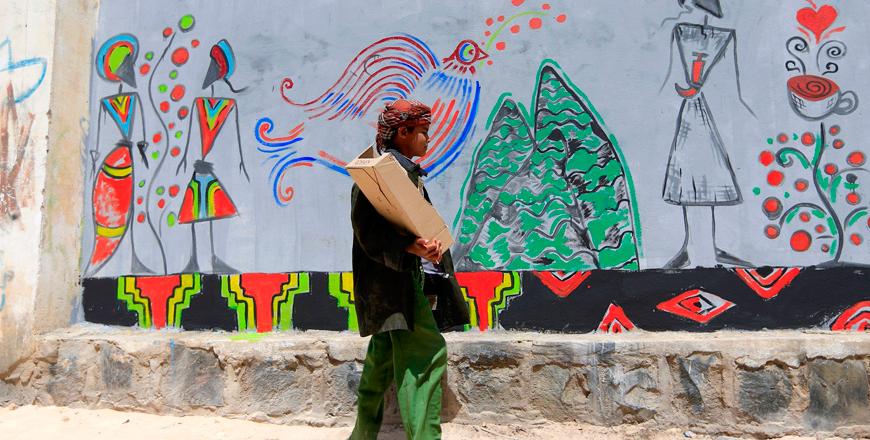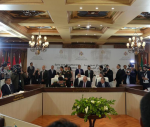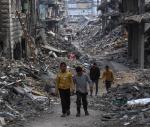You are here
War-torn Yemen at a 'critical juncture' — UN
By AFP - Mar 08,2020 - Last updated at Mar 08,2020

Yemeni women walk past shops in the old city market of the capital Sanaa on March 2 (AFP photo)
DUBAI — Yemen is at a crossroads, the United Nations' envoy to the war-torn country said Saturday, as tens of thousands of people fled the northern province of Al Jawf after fierce clashes.
Iran-backed Houthi insurgents seized provincial capital Al Hazm earlier this month after heavy fighting with government troops, ending a relative lull in violence that had raised hopes for a more permanent de-escalation.
"Yemen is, in my view, at a critical juncture: We will either silence the guns and resume the political process, or we will slip back into large-scale conflict", Martin Griffiths said during a visit to Marib province.
"Fighting needs to stop now. Military adventurism and the quest for territorial gains are futile," he told reporters, according to a transcript provided by his office.
"They will only drag Yemen to many more years of conflict."
The latest clashes in northern Yemen came after a months-long relative lull in violence as the warring parties showed an apparent interest in de-escalation.
But efforts to resume a political process appear to be unravelling.
The International Committee of the Red Cross (ICRC) said the fighting between the warring parties in Al-Jawf has displaced tens of thousands of people to Marib province.
"The ICRC and the Yemen Red Crescent Society have helped around 70,000 people, or 10,000 families, by providing food, tents, blankets, jerrycans, basins and hygiene kits," the agency said in a statement on Saturday.
"In Al Jawf governorate, increased clashes have hampered efforts to help patients and those in need."
The loss of the strategic city of Al Hazm means the rebels now threaten oil-rich Marib.
At least 2,100 displaced families reached Marib on March 1, the UN humanitarian coordination agency OCHA said last week.
Al Jawf has been mostly controlled by the Houthis, but its capital — only 150 kilometres south of the border with Saudi Arabia — had been in the hands of the government.
Yemen’s internationally recognised government has been battling the Houthi rebels since 2014 when they captured the capital Sanaa and swathes of the impoverished Arab nation.
Since the Saudi-led coalition intervened in March 2015, tens of thousands of people, mostly civilians, have been killed and millions displaced, in what the UN has termed the world’s worst humanitarian crisis.
Related Articles
DUBAI — More than 2,000 families have been displaced after heavy fighting in northern Yemen, the United Nations said Tuesday, after the Hout
RIYADH — The Saudi-led coalition in Yemen said on Wednesday its latest air strikes killed another 60 Houthi rebels near Marib, the last gove
DUBAI — More than 20 people were killed in clashes in Yemen's northern province of Al Jawf late Sunday as government troops tried to reclaim

















